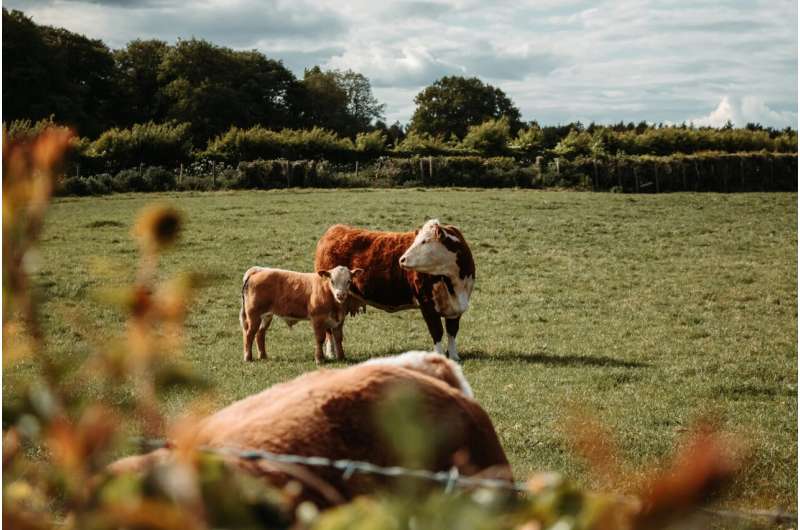This article has been reviewed according to Science X's editorial process and policies. Editors have highlighted the following attributes while ensuring the content's credibility:
fact-checked
trusted source
proofread
Professor explains what the UK/Canada trade disagreement means for UK farmers

With talks between the UK and Canada breaking down over the trade of agriculture products such as beef and cheese, what does it mean for the farming industry and domestic trading in the UK?
Iain Fraser, Professor of Agri-Environmental Economics at the University's School of Economics, explains, "The farming sector has generally been keen to maintain high animal welfare standards which means not allowing the use of growth hormones in beef production. There have also been calls by Parliament for the UK government to place food standards within the law.
"More recently in 2023 the Environment, Food and Rural Affairs (EFRA) Committee launched a call for evidence on food and agricultural trade. As you might expect the Agriculture and Horticulture Development Board (AHDB), NFU and many others were strongly advocating for maintaining high food and production standards (especially with regard to animal welfare) including not allowing the use of growth hormones in animal production.
"We also know that many within farming did not welcome the trade deals we did with Australia and New Zealand—this was less to do with the quantities of trade involved but the precedents they set for how the UK might conduct negotiations.
"This current impasse in terms of trade negotiations with Canada means that we are maintaining our position regarding animal welfare standards, at least as far as beef imports are concerned and in line with the EU standards we have retained since EU exit. UK consumers claim to value high animal welfare standards, as I have found through my research into consumer attitudes towards the use of chlorine washes and growth hormones.
"So, what does this mean for UK consumers and farmers? UK beef producers will not need to compete with cheaper imports that could reduce demand for UK beef. In turn this will likely mean that the price of beef domestically remains unchanged as opposed to possibly falling. That said, this doesn't preclude the opportunity for Canadian beef imports if produced without the use of growth hormones—but this option is being tied to UK access to Canadian dairy produce markets (e.g. cheese). Domestic consumers tend to express a preference for domestic/locally produced food.
"In the short term, the introduction of a significant tax on UK cheese imports into Canada is clearly detrimental for UK producers as might the possible introduction of tax on motor vehicles.
"What this announcement tells us is that doing unilateral trade deals is complex and difficult. Furthermore, as the UK is now a relatively small trading nation compared to when it was part of the EU, it has less power to leverage to achieve what is wants in negotiations of this kind."
Provided by University of Kent




















